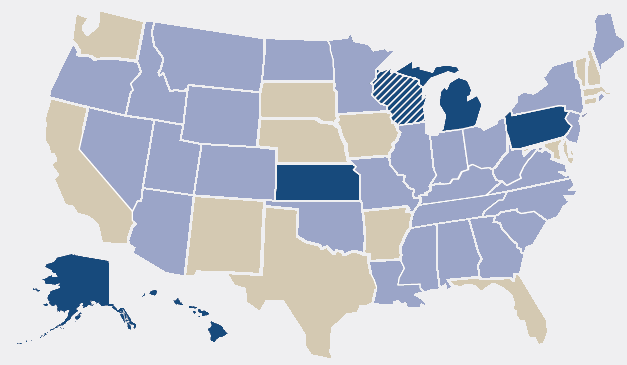Amended state constitutional provisions regarding reductions to judicial salaries
State courts face difficult budgetary decisions as a result of economic conditions. The salaries of federal judges are protected by Article III, Section 1 of the Constitution of the United States; it states that the salaries of federal judges “shall not be diminished during their Continuance in Office.” The NCSC identified the states that have also constitutionally insulated their state’s judicial salaries from any reductions. The scope of this analysis is limited to state constitutions and does not expand to statutory limitations on judicial salary reductions. Statutory limitations are not as meaningful to assess because they can be changed more readily than state constitutional provisions.
- *Twenty-nine states have constitutional provisions similar to the federal constitution that clearly prohibit the reduction of salaries for general-jurisdiction and appellate judges during their terms of office.
- Five states have constitutional provisions that allow for reductions in judges’ salaries but only to the extent that a reduction applies to all public officers.
- Fifteen states do not clearly address reductions in judges’ salaries during their terms of office.
- Wisconsin has a constitutional provision that is very ambiguous; however, it appears to allow the salaries of judges to be reduced (see Article 4, Section 26 of the Constitution of the State of Wisconsin).

 | Notes: |
